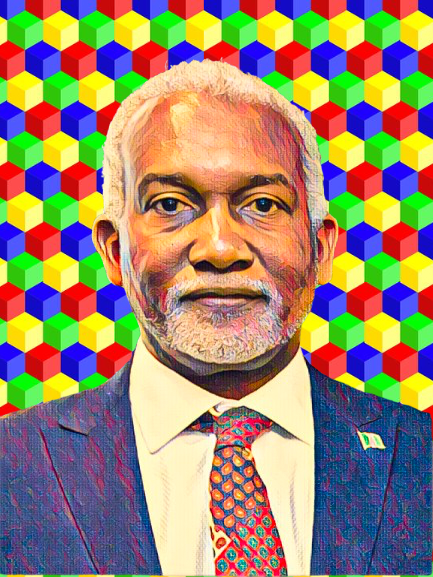KEY POINTS
-
Nigeria and Brazil are advancing partnerships in energy, aviation, and agriculture, with Petrobras and Embraer eyeing refinery upgrades and aviation deals to tap into Africa’s largest economy.
-
The Tinubu administration’s reforms, including tax incentives and a gas expansion plan, aim to attract Brazilian investment in biofuels and renewable energy projects.
-
Challenges like bureaucratic delays and oil theft loom over the collaboration, even as both nations target doubling bilateral trade to $3.5 billion by 2030.
Nigeria is intensifying efforts to expand its economic partnership with Brazil, targeting investments in energy, aviation, agriculture, and digital technology.
Foreign Minister Yusuf Tuggar led a high-profile delegation at the Brazil-Nigeria Business Roundtable in Rio de Janeiro on April 29, 2025, organized by Brazil’s investment promotion agency ApexBrasil, its foreign ministry, and the Brazilian Development Bank (BNDES).
The forum aimed to revitalize bilateral trade, which stood at $1.6 billion in 2023 but remains below potential given both nations’ economic clout.
“Our countries share a legacy of cooperation. Now is the time to translate that legacy into tangible economic progress,” Tuggar said, emphasizing Nigeria’s ongoing reforms under President Bola Tinubu’s administration, including tax incentives and streamlined regulations for foreign investors.
The Cable reports that the Key attendees included executives from Brazilian giants like Petrobras (oil and gas) and Embraer (aviation), alongside Nigerian officials such as Aisha Rimi, CEO of the Nigerian Investment Promotion Commission (NIPC).
Petrobras eyes Nigerian oil revamp
Discussions zeroed in on Nigeria’s energy sector, where Petrobras expressed interest in partnering to upgrade aging refineries and boost crude production, which has slumped to 1.3 million barrels per day due to theft and underinvestment.
Meanwhile, Embraer proposed joint ventures to modernize Nigeria’s aviation infrastructure, including maintenance hubs and regional aircraft procurement to enhance domestic connectivity. Agriculture also featured prominently, with Brazil offering expertise in ethanol production from sugarcane—a model Nigeria seeks to replicate to reduce fossil fuel reliance.
Tuggar highlighted Nigeria’s $1.2 billion National Gas Expansion Programme, which aligns with Brazil’s success in transitioning to biofuels. “Nigeria is ripe for partnerships that leverage Brazilian innovation in green energy and agribusiness,” he added. BNDES director José Luis Gordon noted Brazil’s readiness to fund projects under Nigeria’s Renewable Energy Master Plan, which targets 30% clean energy by 2030.
The talks come as Nigeria seeks to diversify its economy amid declining oil revenues and a weakening naira, which has lost 40% of its value since 2023. Analysts warn, however, that bureaucratic hurdles and insecurity could deter investors. “Brazilian firms will demand guarantees against infrastructure sabotage and policy flip-flops,” said Lagos-based economist Ngozi Okonjo.



